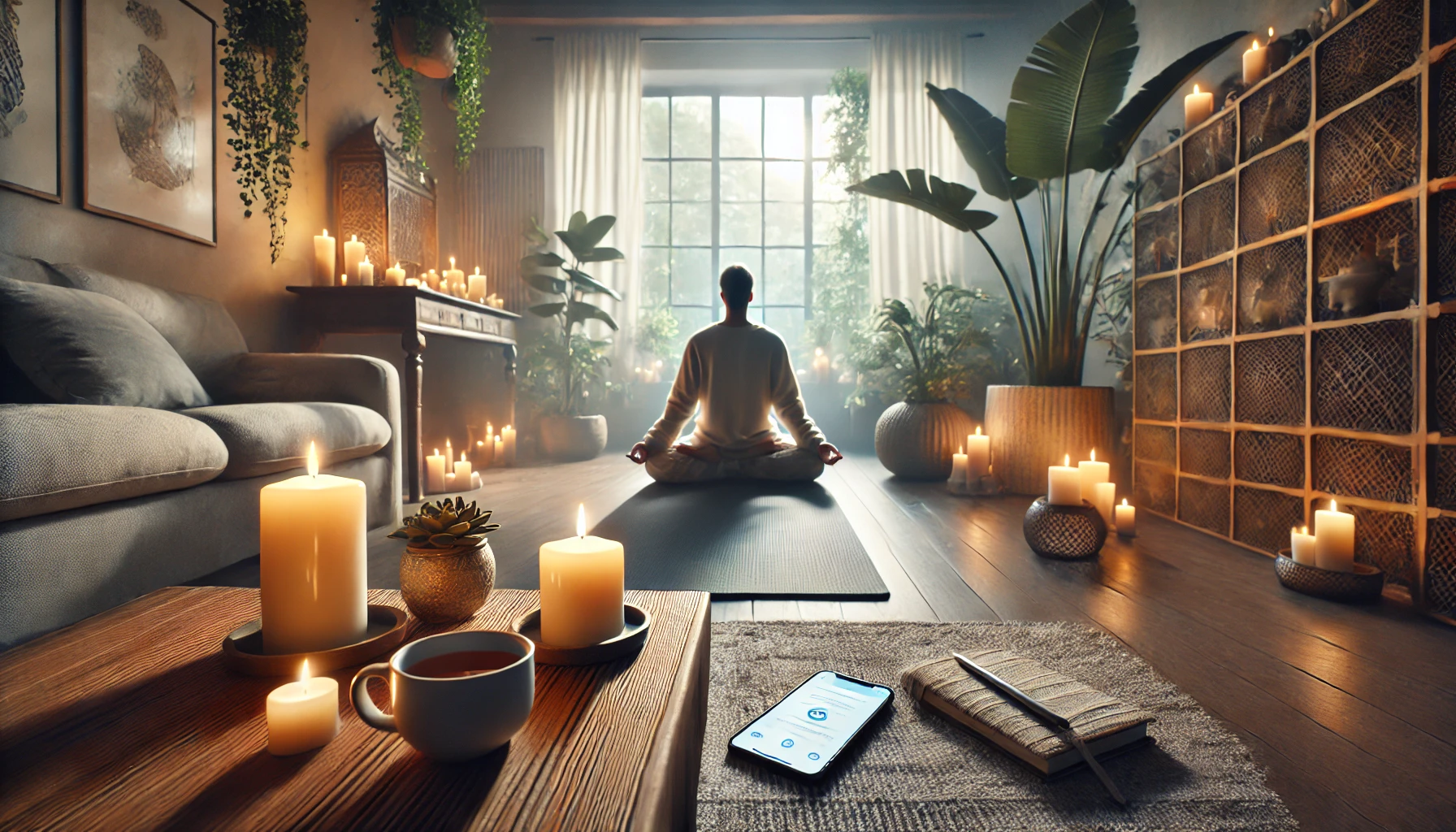Meditation isn’t just a spiritual practice—it’s a scientifically backed method to reduce stress, improve focus, and balance emotions. In a world full of noise, deadlines, and constant stimulation, meditation offers a simple and powerful way to slow down, breathe, and reconnect with yourself.
You don’t need hours, incense, or years of training to feel the benefits. Just a few minutes a day can make a profound difference.
Let’s explore how meditation supports mental and emotional well-being—and how to make it part of your daily life.
1. What Is Meditation, really?
Meditation is the intentional practice of focusing your attention—often on the breath, a word, or a sensation—to increase awareness and presence.
It’s not about “clearing the mind” or achieving perfection. It’s about:
- Noticing your thoughts without judgment
- Returning gently to your point of focus
- Creating space between stimulus and reaction
Over time, this builds mental resilience and emotional balance.
2. Mental Health Benefits of Meditation
Reduces Stress and Cortisol
Meditation lowers cortisol levels, the hormone linked to stress. Regular practice calms the nervous system, helping you stay grounded in stressful situations.
Improves Focus and Clarity
By training your mind to return to the present moment, you increase your ability to concentrate—even outside of meditation.
Enhances Emotional Regulation
Meditation strengthens the prefrontal cortex (responsible for reasoning) and quiets the amygdala (linked to fear and reactivity). This helps you respond to emotions more wisely and calmly.
Decreases Anxiety and Depression Symptoms
Mindfulness-based practices are often recommended in therapy because they help people observe their thoughts rather than getting overwhelmed by them.
3. Emotional Benefits of Meditation
💚 Promotes Inner Peace
By stepping away from mental noise, meditation cultivates stillness, silence, and a deep sense of calm.
💚 Boosts Self-Awareness and Acceptance
You become more in tune with your patterns and emotions, which increases compassion—for yourself and others.
💚 Increases Gratitude and Joy
Meditation helps shift focus from worry and lack to presence and appreciation.
4. Types of Meditation (and How to Try Them)
You don’t need to meditate the same way every time. Explore and find what feels right for you.
🧘 Mindfulness Meditation
Focus on your breath or bodily sensations. When your mind wanders, gently bring it back.
Great for: anxiety, focus, and presence.
💬 Guided Meditation
Listen to someone guiding you through visualizations, affirmations, or relaxation.
Great for: beginners, stress relief, and sleep.
✨ Loving-Kindness (Metta)
Send positive wishes to yourself and others (e.g., “May I be well. May I be peaceful.”).
Great for: emotional healing, compassion, and self-love.
🕯️ Focus Meditation
Focus on a single object, sound, or mantra.
Great for: training attention and mental discipline.
🌿 Walking Meditation
Walk slowly, paying attention to your steps and breath.
Great for: those who struggle with stillness.
5. How to Start Meditating (Without Pressure)
You don’t need to meditate for 30 minutes to feel the benefits. Start small:
- Begin with just 2 to 5 minutes a day
- Sit in a comfortable position (chair, floor, bed)
- Focus on your breath or a calming word
- When your mind wanders (it will!), bring it back gently
- Use an app if needed (Headspace, Insight Timer, Calm)
- Be patient—consistency matters more than duration
There is no “perfect” way to meditate. Showing up is the practice.
6. How Meditation Changes the Brain
Scientific studies using brain scans show that regular meditation:
- Increases gray matter in areas linked to memory, learning, and self-awareness
- Shrinks the amygdala, reducing reactivity to fear and stress
- Enhances connectivity between regions responsible for emotional regulation
In other words: meditation rewires your brain for calm, focus, and clarity.
7. Making Meditation a Daily Habit
To make meditation stick:
- Tie it to a daily cue (after brushing teeth, before sleep)
- Start short and build slowly
- Track your practice with a calendar or app
- Celebrate consistency, not perfection
- Remind yourself of why you’re doing it—for your peace, health, and happiness
Breathe. Pause. Be.
Meditation is not an escape from life—it’s a return to it. In just a few quiet moments each day, you can begin to feel more centered, less reactive, and more connected to yourself and others.
Give yourself permission to slow down. Your mind, your heart, and your entire being will thank you.
